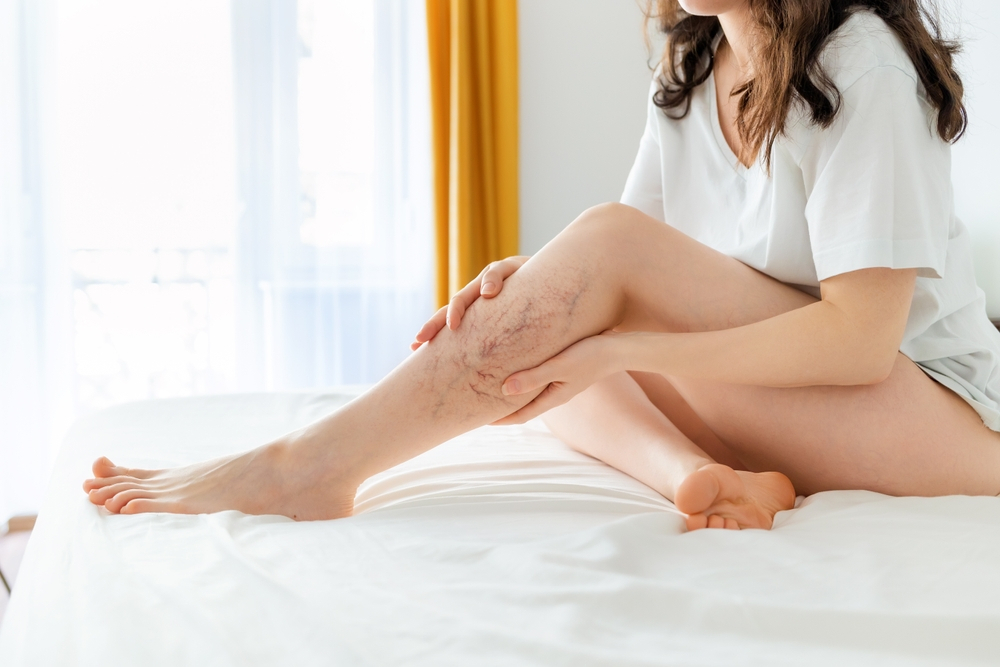If you suffer from varicose veins, you may wonder if and how they affect your sleep. Not getting a good night’s rest can significantly impact your quality of life, so understanding the connection between varicose veins and sleep is critical in ensuring you can still get the necessary hours to stay healthy and energized. This guide will cover all the essential information about sleeping with varicose veins, including tips for improving comfort during nighttime hours and potential treatments for long-term solutions.
What Are Varicose Veins?
Varicose veins are a fairly common condition affecting many people, particularly as they age. These are swollen, twisted veins often appearing in the legs and typically occur due to weakened blood vessels and valves. Varicose veins are a cosmetic issue and can lead to severe health problems such as blood clots and skin ulcers if left untreated. While varicose veins may not be a severe health threat early on, they can be uncomfortable and interfere with daily activities, including sleeping.
Common symptoms include aching legs, heaviness, and fatigue in the affected area. The skin surrounding the veins may become itchy or dry, and there may be muscle cramping, swelling, and throbbing or burning sensations in the legs. In severe cases, the skin overlying the veins can become discolored, and there can be inflammation or ulcers in the affected area.
The primary cause of varicose veins is weak or damaged vein valves. Veins have one-way valves that prevent blood from flowing backward. When these valves fail to function properly, blood can pool in the veins, leading to the swelling and twisting characteristic of varicose veins. Various factors contribute to the development of varicose veins, including genetics, aging, hormonal changes (during pregnancy, puberty, and menopause), standing or sitting for long periods, obesity, and a history of deep vein thrombosis.
The Role of Proper Sleep in Managing Varicose Veins
Varicose veins are a common and often painful condition that affects many individuals. While genetics and certain lifestyle factors can contribute to the development of varicose veins, proper sleep is a crucial aspect of managing this condition. Adequate sleep promotes healthy blood flow throughout the body, reducing the likelihood of blood pooling in the legs and causing varicose veins.
Moreover, sleep is essential for tissue repair and body rejuvenation, providing the body with the energy and resources necessary to combat this condition. With proper rest, individuals can prevent the worsening of their varicose veins and improve their overall quality of life. Therefore, prioritizing sleep in your daily routines is essential to managing varicose veins.
Tips to Help Sleeping With Varicose Veins
Managing the discomfort from varicose veins to get a good night’s sleep requires a combination of home remedies, lifestyle changes, and potential medical interventions. Here are some tips and strategies:
Choose the Right Mattress for Maximum Comfort
Opt for a medium-firm mattress that offers support without being too hard. A memory foam mattress or topper can also mold to the shape of your body, providing support where needed and helping relieve pressure on the veins.
Add Pillows for Supportive Sleep
Use pillows to elevate your legs. Placing them under the calves or ankles can help improve circulation and reduce symptoms. Full-body pillows can help side sleepers maintain a comfortable position that can be less stressful on the legs.
Adjust Your Bedroom to Help Reduce Symptoms of Varicose Veins
Try keeping your bedroom cool for a more comfortable sleep, as it can reduce swelling and discomfort. It’s essential to remove any obstacles from your bedroom to prevent trips or falls, especially if you get up at night.
Create an Ideal Sleep Routine to Soothe Aching Legs
A warm bath before bedtime can relieve aching legs and help you relax. Massaging your legs gently can also enhance blood circulation and reduce discomfort. It’s recommended to avoid consuming caffeine, particularly in the evening, as it might disturb your sleep. Creating a consistent sleep schedule where you go to bed and wake up at the same time every day can promote a healthy sleep pattern.
Explore Medical Treatments to Manage Varicose Veins
Varicose veins often present both aesthetic and physical discomfort and can be effectively treated using various methods. Sclerotherapy involves directly injecting a sclerosing chemical into the problematic veins, leading to their eventual scarring, fading, and closure, thus improving their appearance and alleviating associated symptoms. Another cutting-edge, non-surgical technique is VeinGogh, which employs radiofrequency energy to painlessly eradicate varicose veins, offering relief to those afflicted by this issue.
Additionally, radiofrequency ablation is another minimally invasive procedure, targeting more prominent veins by heating their walls with radiofrequency energy, leading to their effective sealing — a nearly painless alternative with a speedy recovery compared to traditional surgeries. Other notable treatments include compression stockings, which boost healthy blood circulation while easing discomfort and swelling. Laser therapy offers a solution for smaller varicose veins by using intense light beams to close them. For more serious cases, ligation and stripping are employed, where the affected veins are tied and sealed.
Restful Nights and Healthier Veins Await With Varicose Vein Treatments in Mountain View, CA
Dealing with varicose veins doesn’t mean sacrificing your sleep quality. You can achieve restful nights and healthier veins by understanding the connection between varicose veins and sleep, optimizing your sleep environment, adopting healthy bedtime habits, and exploring treatment options. At Shaheen Vascular in Mountain View, CA, we support you on your journey toward improved vein health and overall well-being. Contact us today by calling (650) 965-1909 or using our online form to learn more about how we can assist you in enjoying better sleep and greater comfort.




